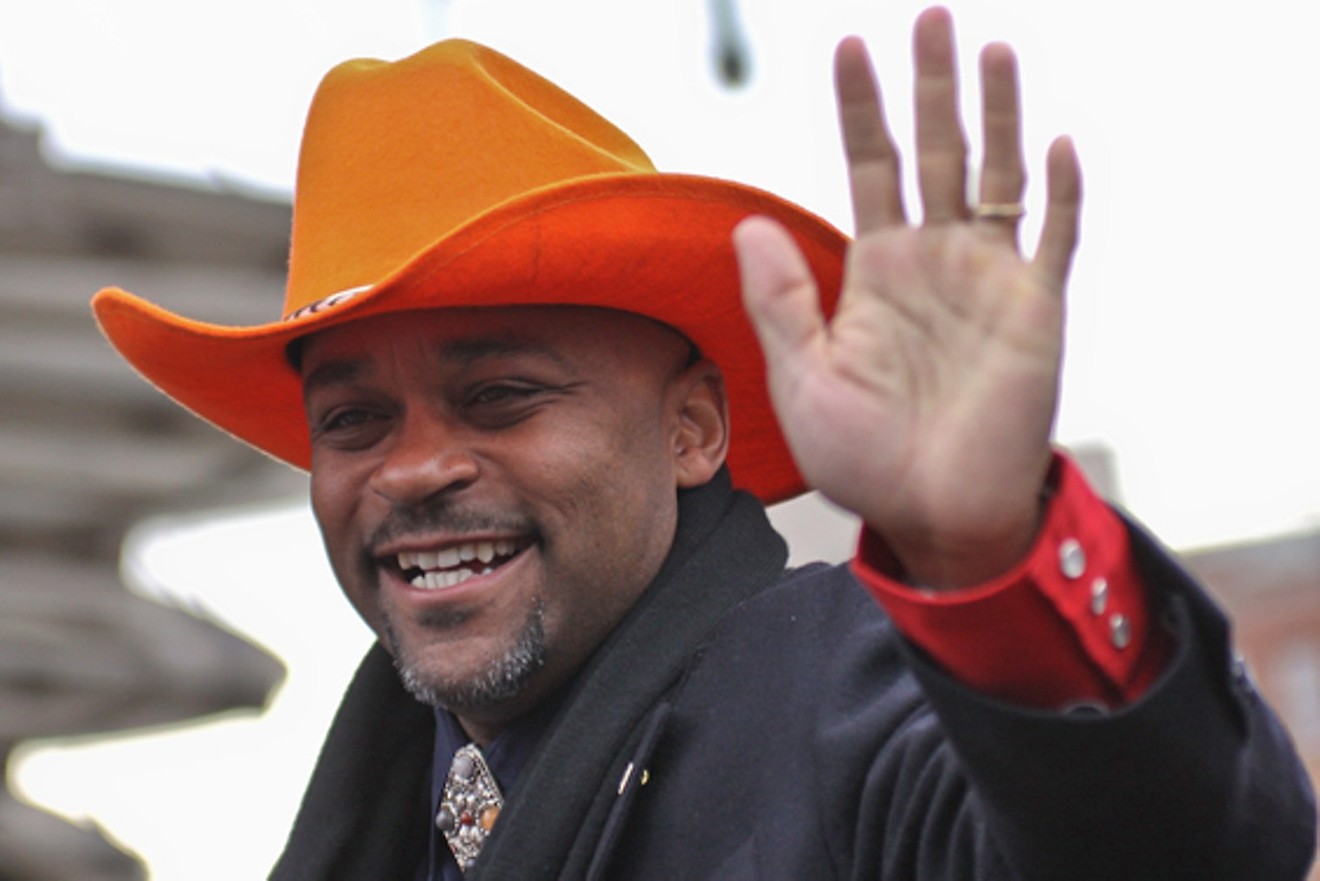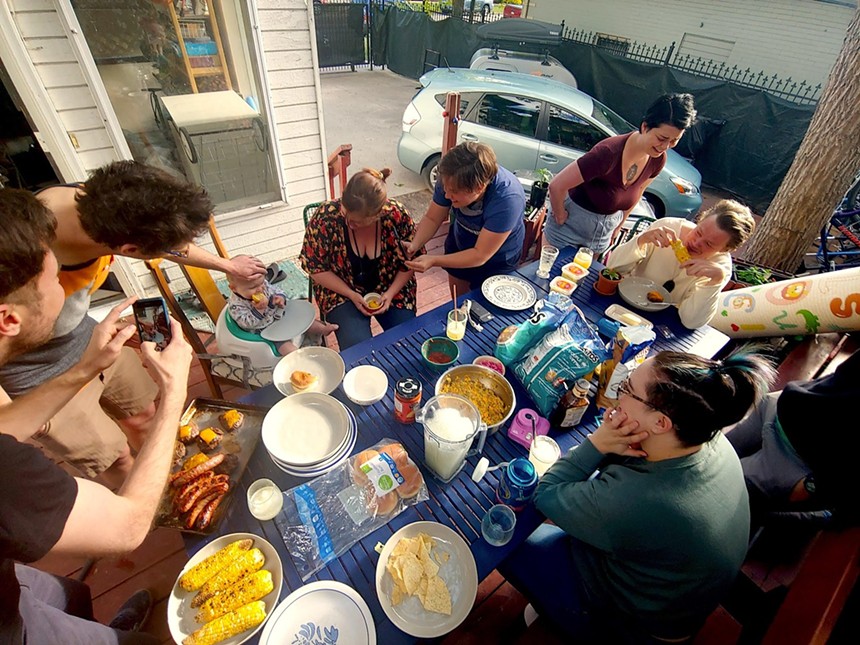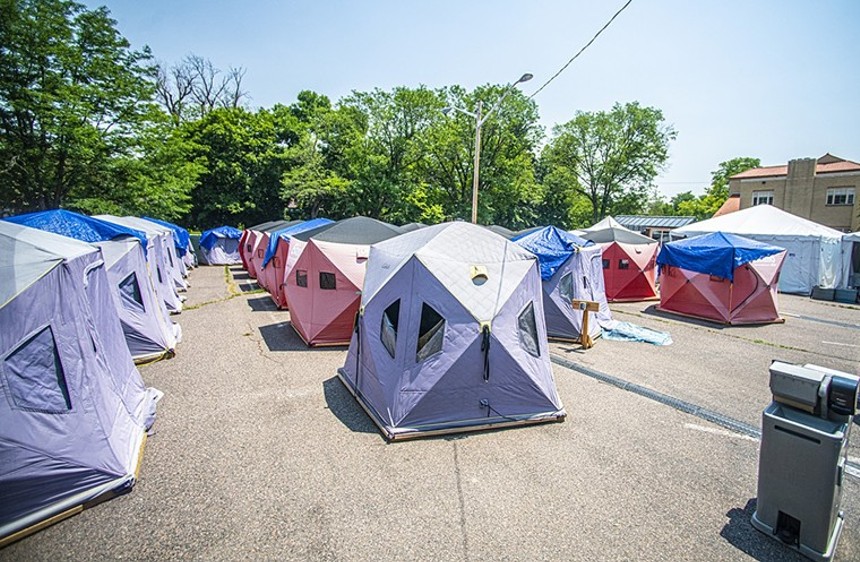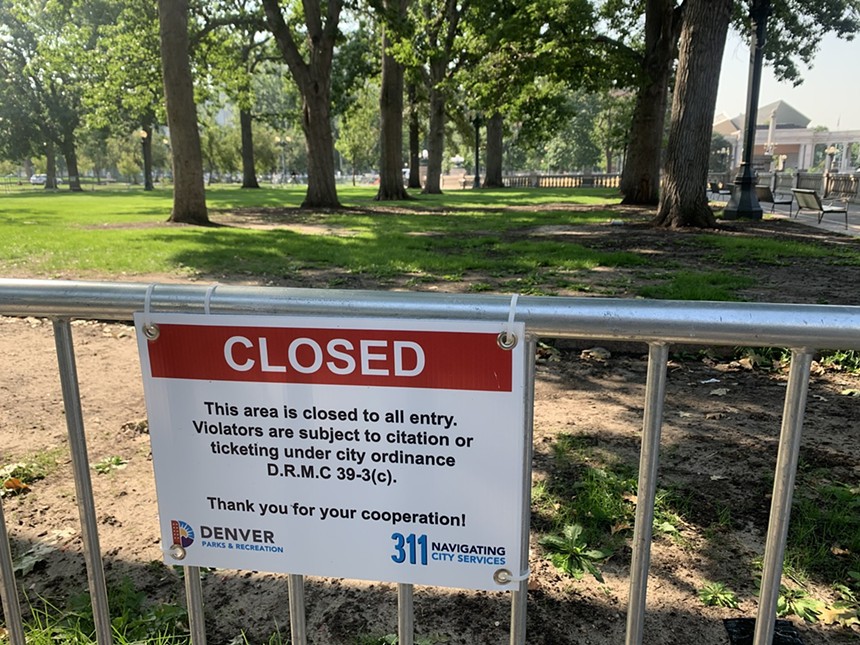Here are the ten biggest Denver political stories of 2021:
Five’s company
In February, Denver City Council passed a hotly contested zoning code update that overhauled how the city approaches group-living situations. The ordinance increased the number of unrelated adults who can live together in the same household from two to five and made it possible to set up halfway houses and homeless shelters in more areas in Denver. But residents who had coalesced into the group Safe and Sound Denver fiercely opposed the ordinance, arguing that it would negatively affect public safety and neighborhood character. After it passed, they took their opposition to the ballot (with the help of a conservative dark-money organization). But Denver voters ended up handily rejecting their repeal measure.
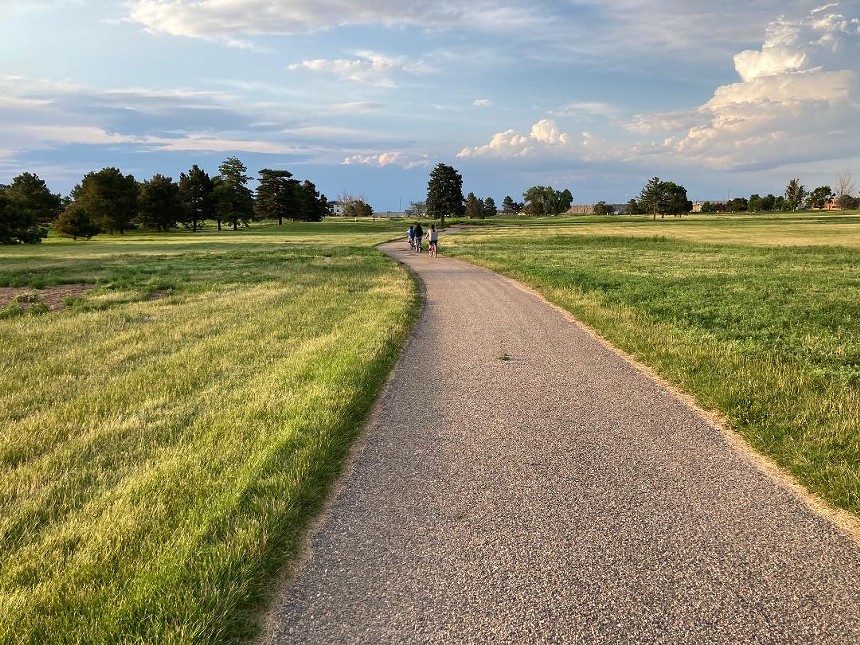
The former Park Hill Golf Course was the focus of two measures on the November Denver ballot.
Amy Harris
The Park Hill Golf Course has been defunct since 2018, but the 155-acre property saw a lot of action in 2021 anyway. Save Open Space Denver, an advocacy organization seeking to block development and transform the area into a park, landed an initiative on the ballot that called for a citywide vote in order to lift the conservation easement on the land. But Westside Investment Partners, which bought the property for $24 million and wants to construct a mixed-use development on the site, funded a ballot measure that sought to undercut the Save Open Space Denver proposal. Confusing, yes...but voters apparently got the message, and shot down Westside’s measure while approving that of Save Open Space Denver. Westside and the city, still hopeful that a development can happen on the land, are continuing to work on an area plan.
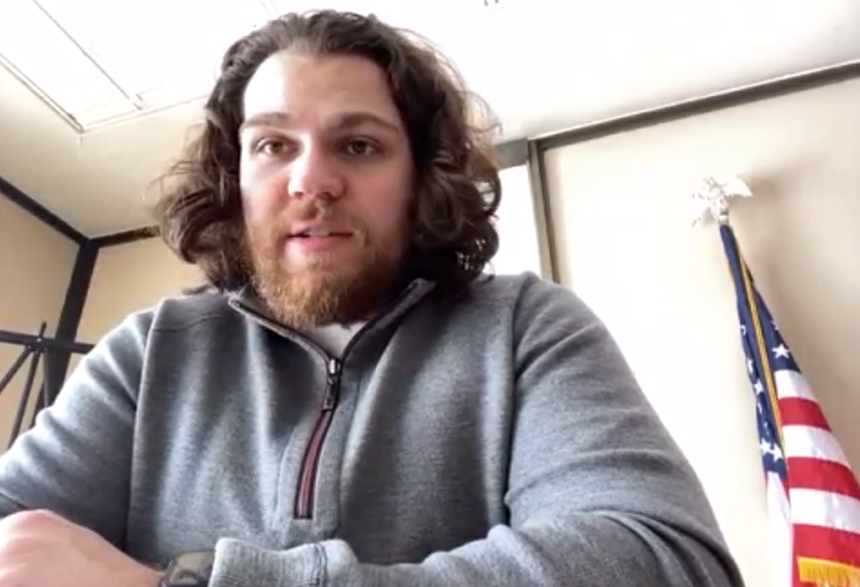
Garrett Flicker met with city officials on April 16 regarding the homeless encampment ballot initiative.
City of Denver
Garrett Flicker, the new young, gay, Jewish leader of the Denver Republican Party, promised to make a splash in the November election. Thanks to financial support from Defend Colorado — the same dark-money group that helped fund the Safe and Sound Denver measure — Flicker was able to land two initiatives on the November ballot: a sales tax decrease and an amendment to the Denver camping ban. Homeless service providers were afraid that one would pass, and the city filed a lawsuit against Flicker in mid-October because his proposal’s provision that the city respond to an encampment complaint within 72 hours clashed with federal orders. On October 31, a judge ruled that the provision was unlawful and would not be written into Denver law if the measure passed. It didn’t. And Flicker’s sales tax decrease was also a flop.
Clean sweep
In October 2020, Denver Homeless Out Loud and multiple homeless plaintiffs sued the City of Denver and the State of Colorado over encampment sweeps. And in January, Judge William J. Martinez issued a preliminary injunction, stating that the City of Denver needed to provide at least seven days' notice before conducting one of its typical encampment sweeps. And even when a "public health or safety risk exists," the city must provide at least 48 hours' notice before sweeping an encampment. The City of Denver appealed the ruling; the 10th Circuit Court of Appeals has yet to rule. In the meantime, sweeps are continuing, albeit with a guaranteed timeline to let people know when they'll need to move their belongings.
Safe-camping sites find a home
In December 2020, the first safe-camping sites for people experiencing homelessness in Denver went live at two church parking lots in the Capitol Hill area. By the end of 2021, the city had seen six different safe-camping sites established. It had also seen a major change in the position of Hancock’s administration, which was slow to embrace the concept but is now so enthusiastic that it pushed for a site on city property and earmarked $4 million for the operation of safe-camping sites in the coming year. "As long as we have people who are on the streets unwilling to go indoors, we have got to have alternatives for them," the mayor says. "And I think this is as good as I’ve seen around the country."
Where there’s smoke, there’s ire
For years, public-health advocates have been asking elected officials in the Mile High City to ban the sale of flavored tobacco and vaping products. These advocates, like ones for the Campaign for Tobacco-Free Kids, have cited the popularity of vaping among Colorado's youth, many of whom cite the flavors as an attractive aspect of vaping. In August, Denver City Council reps Amanda Sawyer and Debbie Ortega unveiled a flavored tobacco ban proposal that led to a massive debate at City Hall, with lobbyists representing big tobacco, small vape shops and hookah lounges clashing with public-health advocates. The final measure, which the city council passed in December, offered exemptions for hookah lounges, premium cigars and pipe tobacco. But Mayor Hancock vetoed the proposal, in only the second veto of his tenure. Now proponents of the ban are looking for a statewide solution.
Room for help
Denver already had a reputation as being unfriendly to tenants, and the economic hardships of the pandemic just made the situation worse for renters. But in June, Denver City Council authorized a program that provides the right to eviction legal defense for renters making 80 percent or less of the area median income. “This is a critical moment for renters everywhere who have yet to find stable footing after a year of compounding unpaid rent debt due to COVID-19," said Councilwoman Candi CdeBaca, a co-sponsor. And 2022 could lead to even more progress for renters, as the November 2022 ballot will include an initiative that calls for a universal eviction legal defense fund subsidized by a $75 tax on every residential unit in the city.
The center will not hold
In July, Mayor Hancock presented a proposed $450 million bond package that broke down into four categories — facilities, housing and sheltering, transportation, and parks and recreation — that would each be a question on the November ballot. The big-ticket item was $160 million for constructing a new arena at the National Western Center. Hancock included the arena, as well as a transformation of a historic arena, in the facilities category, along with two new libraries and other resident-friendly projects. But recognizing that the National Western Center items would be controversial, Denver City Council voted to corral those two items into a separate, fifth category on the ballot. Despite being completely outspent by the supporters of the National Western Center bond items, the No Arena Bond campaign registered a victory when the bond measure failed. The other four all passed.
No walk in the park
Shortly after Labor Day, the City of Denver put up fencing and notices in Civic Center Park to let the public know that it was closing the park in mid-September. "The current challenges within Civic Center Park have reached a tipping point, creating conditions that put the public’s health and safety at risk. This cannot and will not be allowed to continue. This is the people’s park, and we are taking steps so that everyone can once again feel safe and welcomed there," Mayor Hancock said. The park had become a scene of rodent infestation, human waste, drug sales and violence, according to the Denver Department of Parks and Recreation. Although the city partially reopened the park in November, about two-thirds remains closed while more improvements are made. The city is also in the process of hiring eight park rangers who will help patrol the park twenty hours a day; the 11 p.m. curfew that covers all city parks will continue.
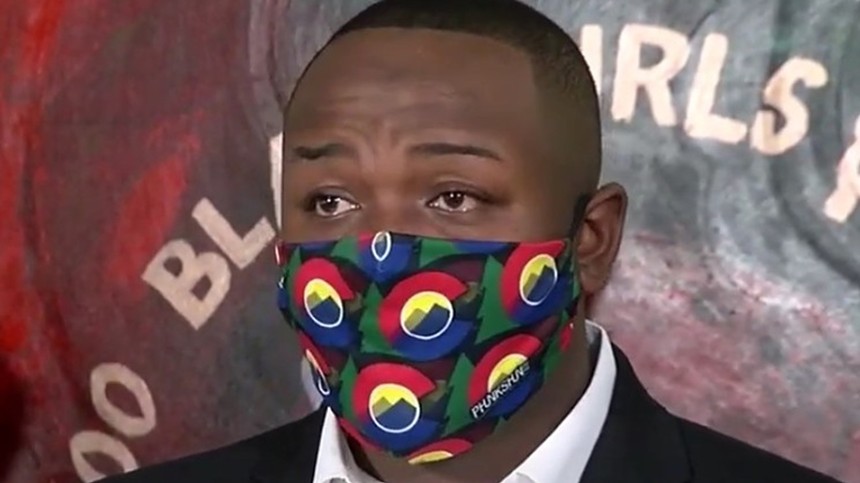
Tay Anderson at a late March press conference in which he denied sexual-assault allegations against him.
Denver7 via YouTube
Tay Anderson, the youngest member of the Denver Board of Education, had a tough year, with accusations of sexual assault coming first from Black Lives Matter 5280, then from a Denver Public Schools parent who told legislators that 61 high school students and one recent graduate had come to her with similar assertions against a person "in a position of trust — quickly identified as Anderson. The Denver Public Schools Board then hired Investigations Law Group to investigate the claims, and months later it reported that it had failed to substantiate the most serious charges. Still, the Denver school board ended up censuring Anderson. But by the end of the year, Anderson was back on top, elected vice president of the school board, filing suit against some of his accusers, and making plans for 2022.

